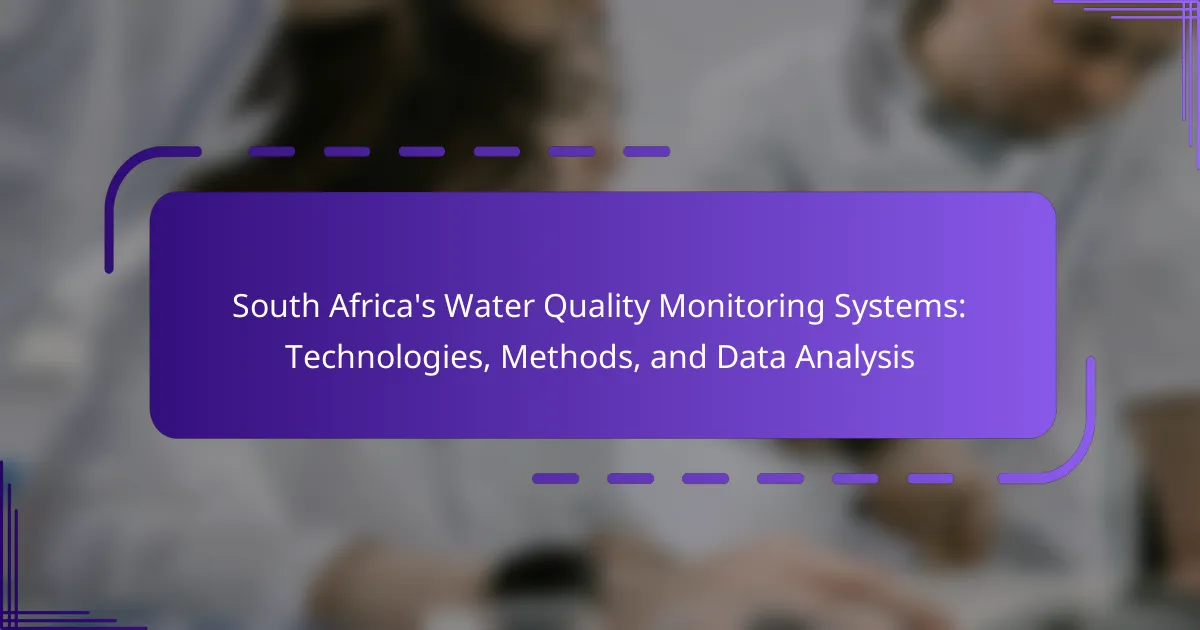South Africa’s Water Quality Monitoring Systems are comprehensive frameworks established to assess and manage water quality nationwide. These systems incorporate advanced technologies such as remote sensing, in-situ sensors, and automated sampling systems to collect and analyze water samples, ensuring compliance with standards set by the Department of Water and Sanitation. Key initiatives include the National […]
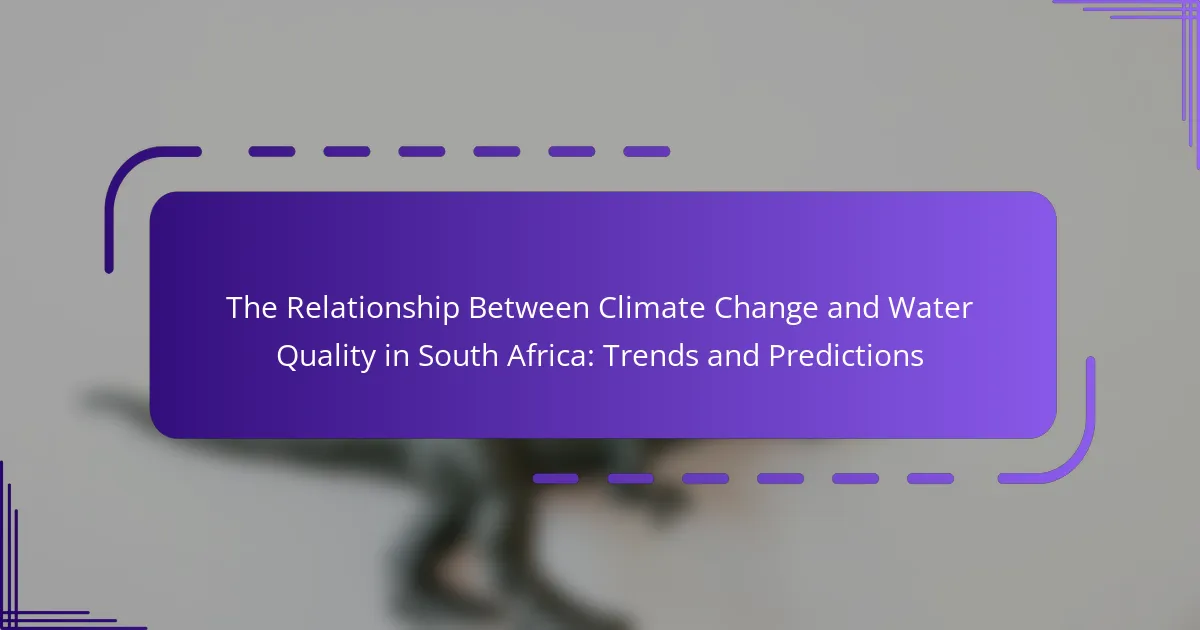
The Relationship Between Climate Change and Water Quality in South Africa: Trends and Predictions
Climate change poses significant threats to water quality in South Africa, primarily through rising temperatures and altered precipitation patterns. Increased evaporation rates diminish water availability, leading to higher pollutant concentrations in water bodies. Additionally, changes in rainfall can cause flooding and erosion, introducing sediments and contaminants into aquatic ecosystems. The South African government acknowledges these […]
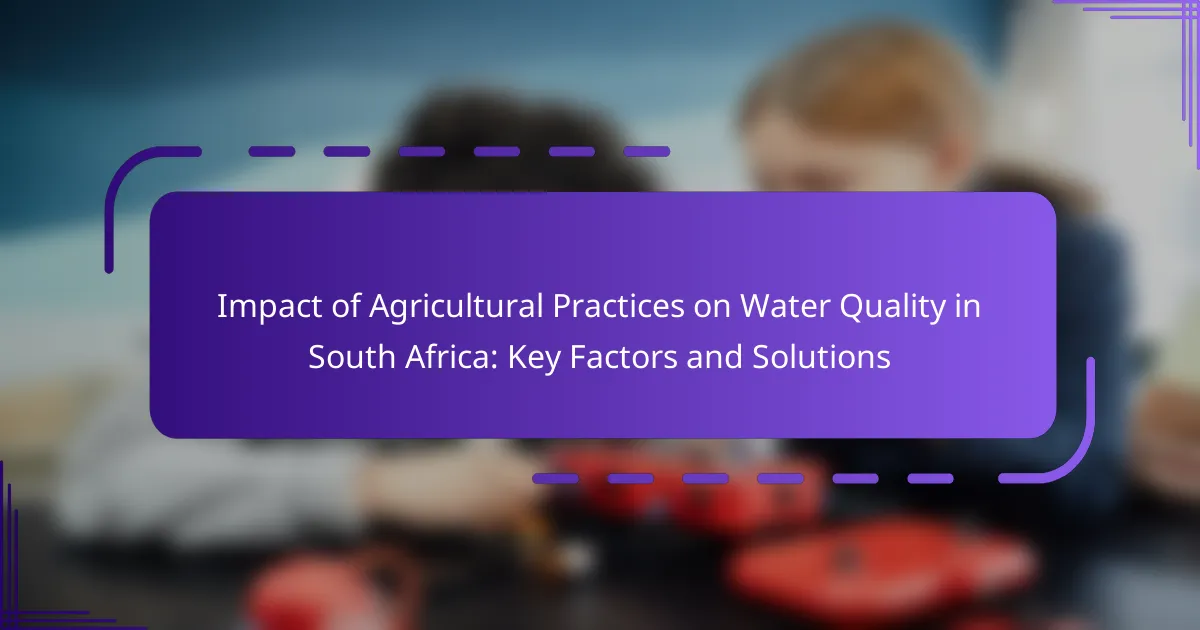
Impact of Agricultural Practices on Water Quality in South Africa: Key Factors and Solutions
Agricultural practices in South Africa significantly influence water quality, primarily through nutrient runoff from intensive farming. This runoff often contains fertilizers and pesticides, leading to eutrophication in aquatic environments, which depletes oxygen levels and harms aquatic life. Additionally, poor land management results in soil erosion, contributing to sedimentation that disrupts ecosystems and water supplies. Research […]
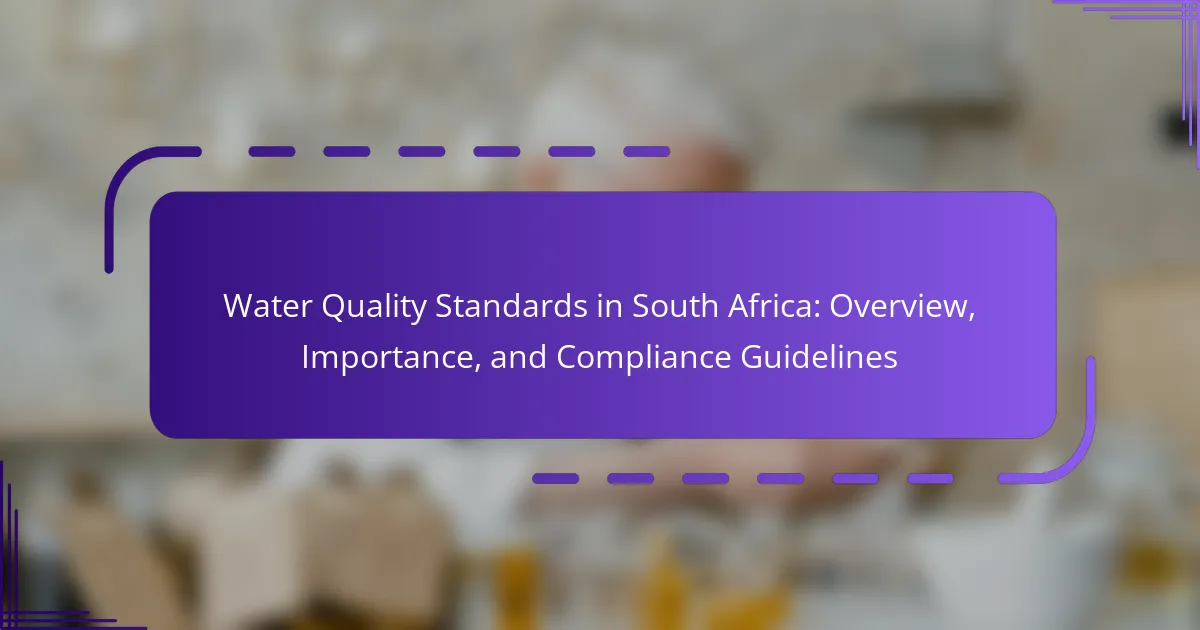
Water Quality Standards in South Africa: Overview, Importance, and Compliance Guidelines
Water Quality Standards in South Africa are regulatory benchmarks established by the South African National Water Act of 1998, aimed at safeguarding human health and the environment. These standards encompass various chemical, physical, and biological parameters, with specific limits set for pollutants such as heavy metals and pathogens. The Department of Water and Sanitation is […]
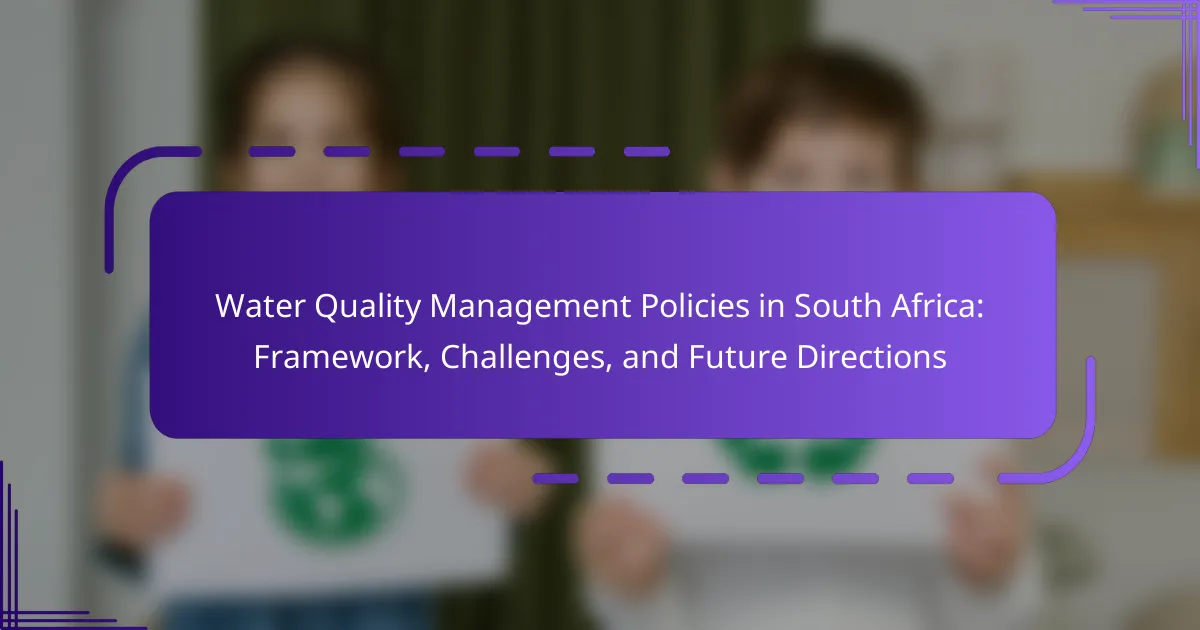
Water Quality Management Policies in South Africa: Framework, Challenges, and Future Directions
Water Quality Management Policies in South Africa are essential frameworks aimed at the sustainable management of the country’s water resources. These policies, primarily guided by the National Water Act of 1998, focus on protecting water quality for human consumption, agriculture, and ecosystems. Key aspects include monitoring and assessing water quality, setting standards, and preventing pollution, […]
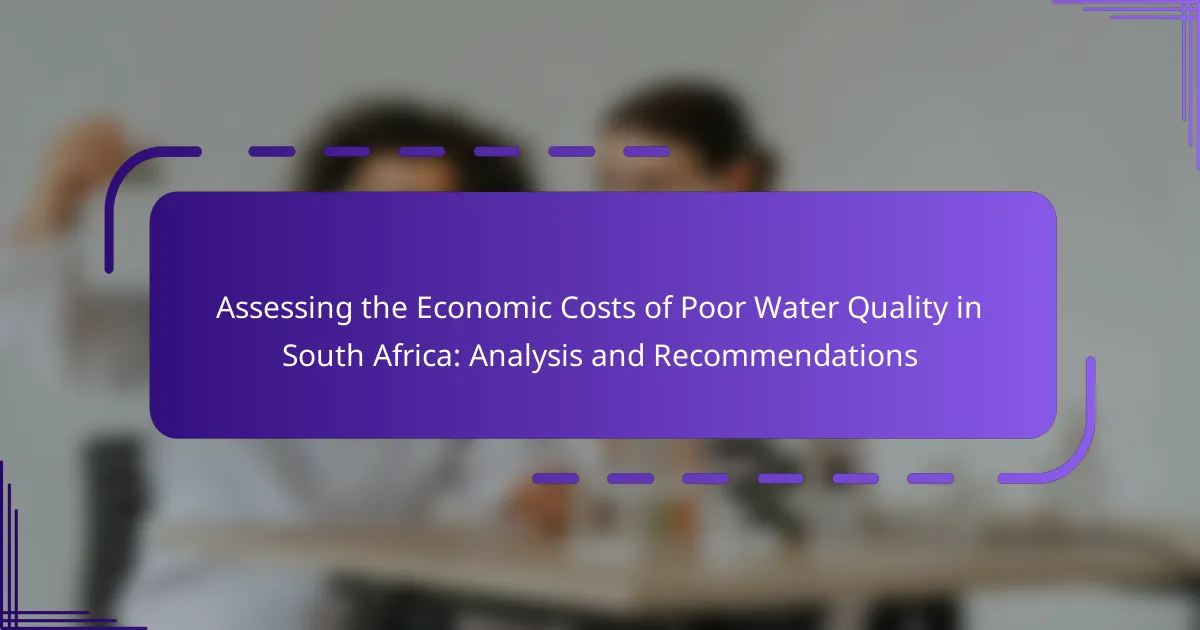
Assessing the Economic Costs of Poor Water Quality in South Africa: Analysis and Recommendations
The economic costs of poor water quality in South Africa are substantial, primarily arising from healthcare expenses related to waterborne diseases, agricultural productivity losses, and impacts on tourism. Contaminated water sources lead to illnesses such as cholera and dysentery, with the government spending millions annually on treatment. Contributing factors include pollution from industrial discharge, agricultural […]
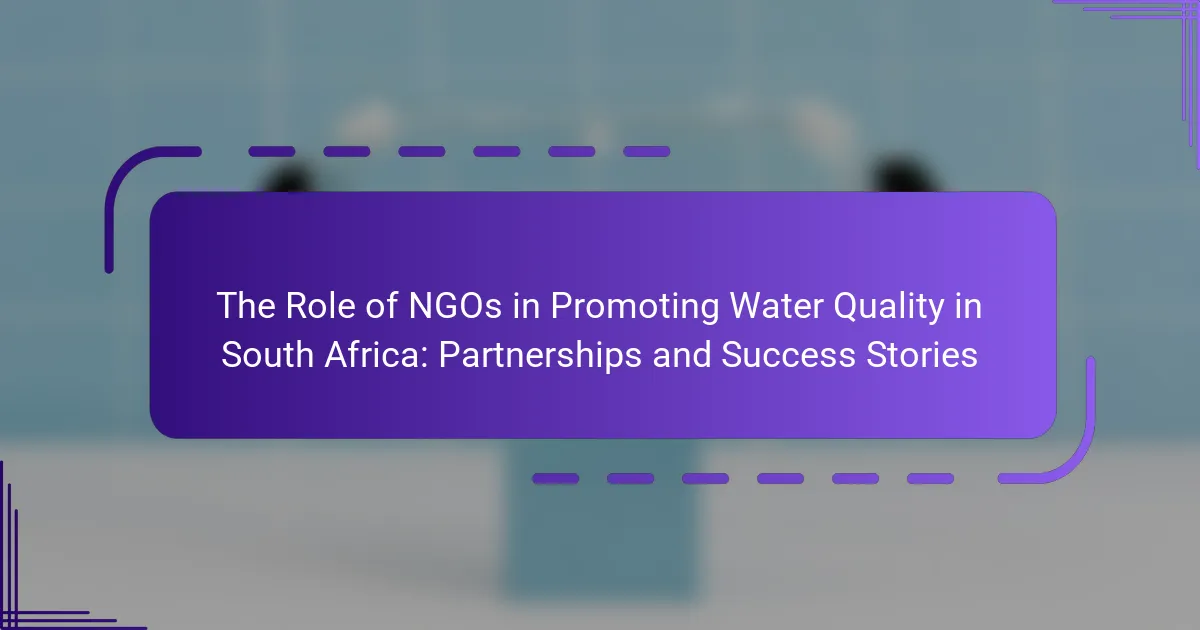
The Role of NGOs in Promoting Water Quality in South Africa: Partnerships and Success Stories
Non-Governmental Organizations (NGOs) are pivotal in enhancing water quality in South Africa through advocacy, education, and community engagement. They collaborate with local communities to implement sustainable water management practices and conduct research to monitor water quality and identify pollution sources. Successful initiatives by organizations such as the Water Research Commission, Endangered Wildlife Trust, South African […]
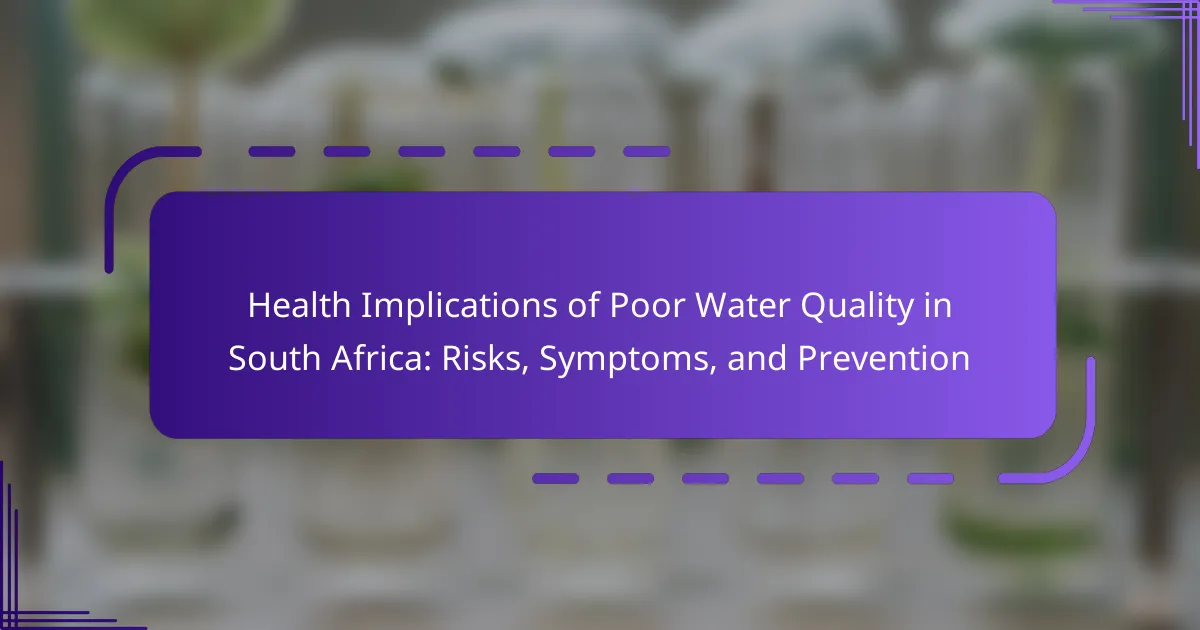
Health Implications of Poor Water Quality in South Africa: Risks, Symptoms, and Prevention
Poor water quality in South Africa is a critical public health issue that contributes to significant health risks, including waterborne diseases such as cholera and dysentery. Contaminated water sources, often laden with pathogens and heavy metals, lead to both immediate health threats and long-term complications, particularly for vulnerable groups like children and the elderly. The […]
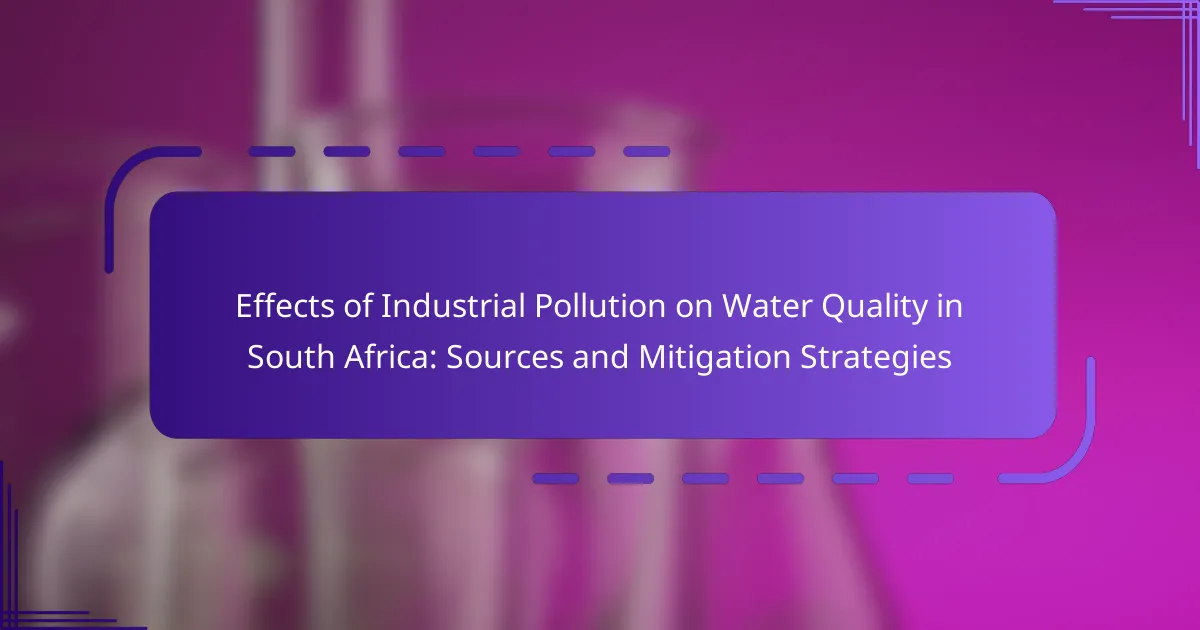
Effects of Industrial Pollution on Water Quality in South Africa: Sources and Mitigation Strategies
Industrial pollution in South Africa is a critical issue affecting water quality, primarily caused by contaminants such as heavy metals and chemicals from mining, manufacturing, and energy production. These pollutants lead to toxic environments for aquatic life and pose significant health risks to communities reliant on contaminated water sources. Currently, 60% of South Africa’s rivers […]
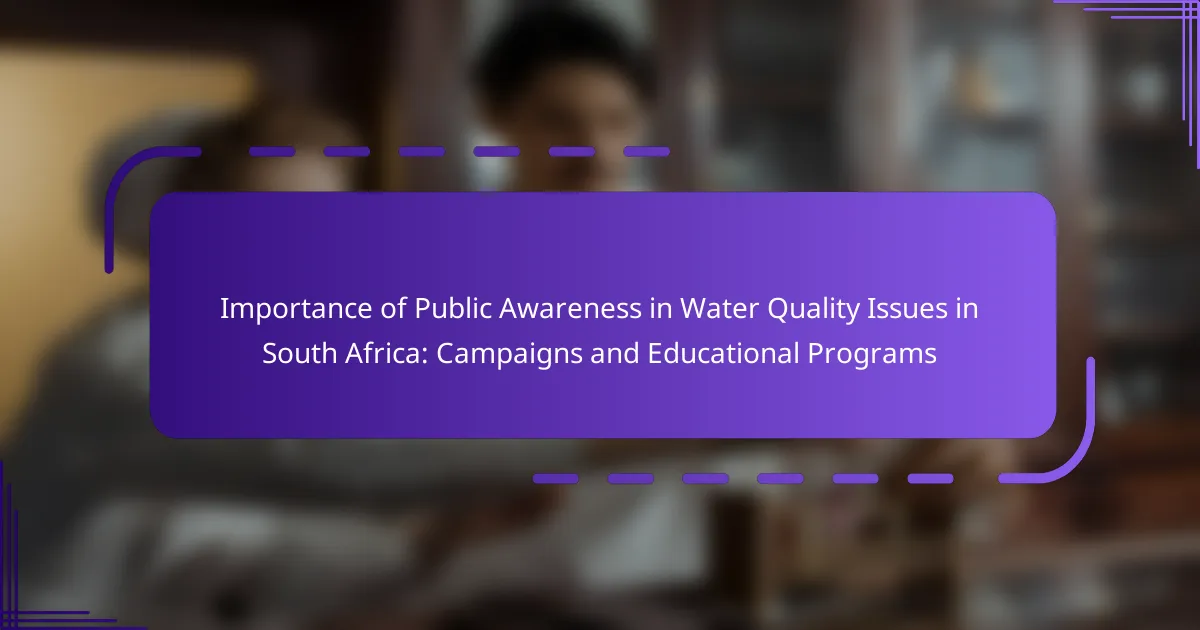
Importance of Public Awareness in Water Quality Issues in South Africa: Campaigns and Educational Programs
Public awareness is essential for addressing water quality issues in South Africa, where contamination from agricultural runoff, industrial pollution, and inadequate wastewater treatment poses significant health risks. High levels of nitrates, phosphates, and harmful pathogens in drinking water highlight the urgent need for informed decision-making regarding water use and conservation. Educational programs and public campaigns […]
